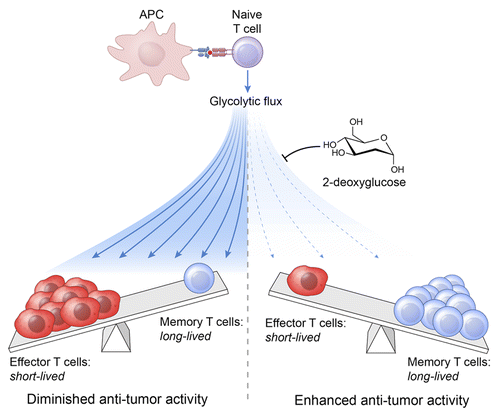Figures & data
Figure 1. Glycolytic metabolism regulates CD8+ T-cell differentiation and effector functions. Upon antigen stimulation, naïve CD8+ T cells undergo massive clonal expansion and differentiate into effector and memory cells. This process is accompanied by metabolic alterations, including an increased flux via aerobic glycolysis. High levels of glycolysis drive CD8+ T cells toward a terminally differentiated effector state that is associated with an impaired antineoplastic activity. Inhibiting glycolysis with 2-deoxyglucose (2-DG) favors the formation of long-lived memory CD8+ T cells that mediate enhanced antitumor responses after adoptive transfer.

